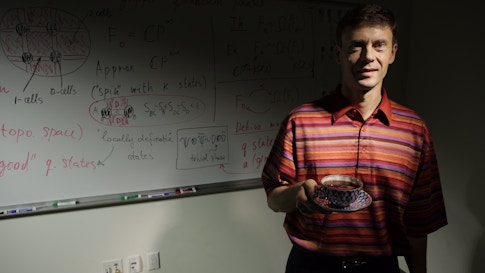From Quantum Computing to Black Holes and Quantum Gravity: Simons Investigator Alexei Kitaev

Simons Investigator Alexei Kitaev’s work has decisively influenced many areas of quantum and condensed-matter physics. Kitaev is Ronald and Maxine Linde Professor of Theoretical Physics and Mathematics at the California Institute of Technology and has been a Simons Investigator since 2015. He was awarded a MacArthur ‘genius’ fellowship in 2008, a Fundamental Physics Prize in 2012, the Dirac Medal in 2015 and the 2017 Oliver E. Buckley Condensed Matter Prize, which he shares with Massachusetts Institute of Technology physicist Xiao-Gang Wen.
Kitaev’s most widely known work — for which he was awarded the Buckley Prize — is credited with kick-starting the field of topological quantum computation. A topological property is a global feature of a surface or space that is not changed by smooth deformations. For example, if you have a sheet of dough with holes in it, the number of holes does not change if you bend or twist the dough without tearing or breaking it.


